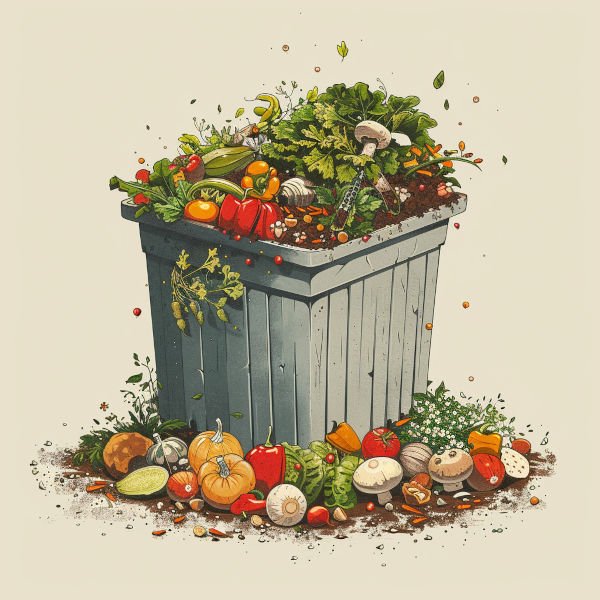Welcome to our guide on understanding how composting works! In this section, we’ll delve into the fascinating process of composting, exploring its key principles, stages, and factors influencing the decomposition of organic matter into nutrient-rich compost.
Composting Process
Composting is a natural biological process that transforms organic waste materials into a nutrient-rich soil amendment. At its core, composting relies on the activity of beneficial microorganisms, such as bacteria, fungi, and other decomposers, to break down organic matter through a series of stages.
Aerobic Decomposition
Composting primarily occurs under aerobic conditions, where oxygen is present. This oxygen-dependent decomposition process, known as aerobic decomposition, promotes the activity of aerobic microorganisms, accelerating the breakdown of organic matter into compost.
Microbial Activity in Composting
Microorganisms play a crucial role in the composting process, breaking down complex organic compounds into simpler compounds through enzymatic reactions. Bacteria, fungi, and other decomposers thrive in the compost pile, metabolizing organic matter and releasing heat as a byproduct of their activity.
Carbon-to-Nitrogen Ratio in Composting
Achieving the right balance of carbon-rich (brown) and nitrogen-rich (green) materials is essential for efficient composting. The carbon-to-nitrogen ratio, often referred to as the C:N ratio, influences microbial activity and decomposition rates in the compost pile.
Organic Matter Breakdown
Organic matter undergoes a series of transformations during the composting process, progressing through different stages of decomposition. Initially, complex organic compounds are broken down into simpler compounds by microbial enzymes, releasing nutrients that enrich the compost.
Composting Stages
The composting process typically consists of several stages, each characterized by specific microbial activities and environmental conditions. These stages include the initial phase of mesophilic decomposition, followed by the thermophilic phase, where temperatures rise significantly due to microbial activity.
Oxygen-Dependent Decomposition
Oxygen is a crucial factor in aerobic composting, facilitating the growth and activity of aerobic microorganisms. Proper aeration of the compost pile ensures adequate oxygen supply, promoting efficient decomposition and minimizing the risk of anaerobic conditions.
Temperature Regulation in Composting
Temperature regulation is vital for successful composting, as microbial activity is temperature-dependent. During the thermophilic phase, temperatures within the compost pile rise significantly, reaching levels that facilitate the breakdown of complex organic compounds and the destruction of weed seeds and pathogens.
Moisture Management in Composting
Maintaining optimal moisture levels in the compost pile is essential for microbial activity and decomposition. Adequate moisture ensures that microorganisms have the water they need to thrive, while excessive moisture can lead to anaerobic conditions and foul odors.
Composting Bin Design
Choosing the right composting bin design is crucial for optimizing the composting process. A well-designed compost bin provides adequate airflow, moisture retention, and insulation, creating an optimal environment for microbial activity and decomposition.
Composting Timeline
The composting timeline varies depending on factors such as temperature, moisture, and the carbon-to-nitrogen ratio. In general, composting can take anywhere from a few weeks to several months, with proper management and conditions accelerating the process.
Compost Pile Turning
Regular turning of the compost pile helps aerate the compost, mix materials, and distribute heat and moisture evenly. Turning the pile also promotes the breakdown of organic matter and accelerates the composting process.
Compost Maturation Process
Once the composting process is complete, the compost undergoes a maturation phase, where it stabilizes and matures into a nutrient-rich soil amendment. Mature compost is dark, crumbly, and earthy-smelling, indicating that it’s ready to use in gardens, landscaping, and agricultural applications.

